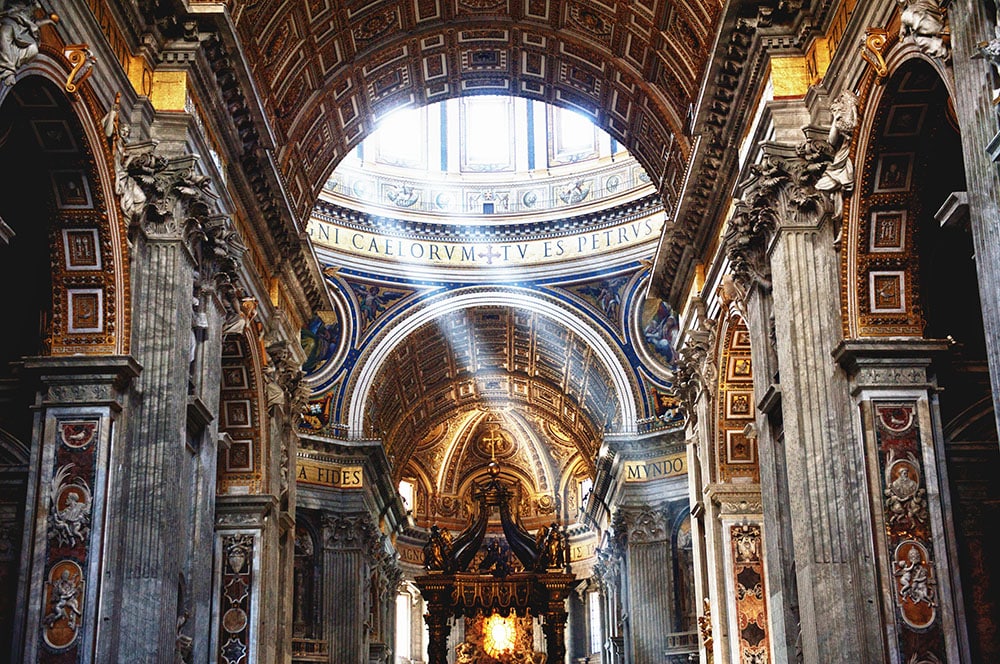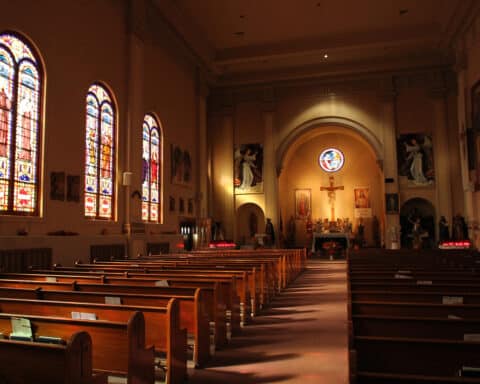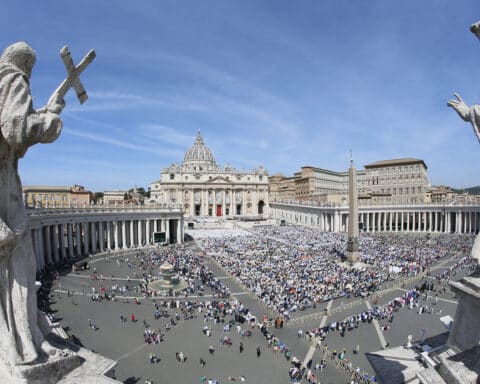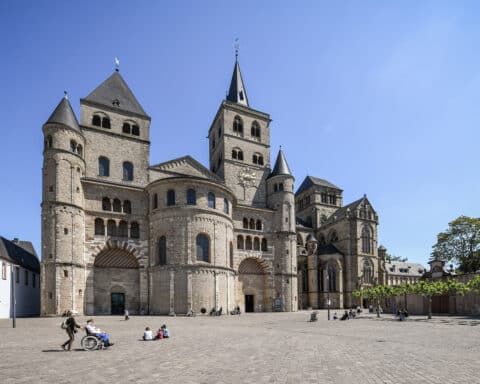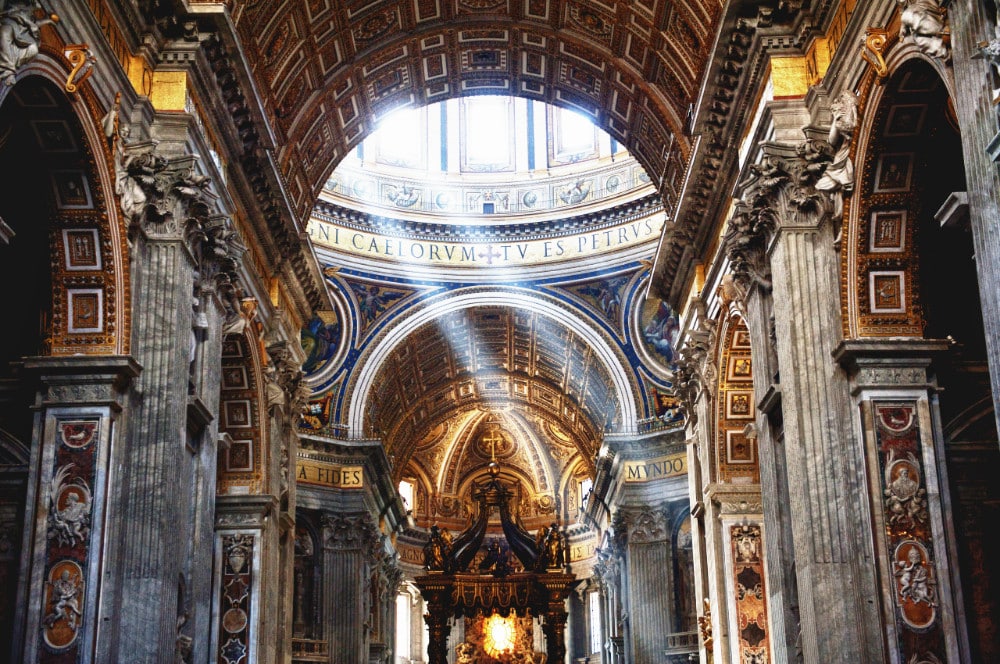Time is passing quickly as we race toward eternity. Each of us has been created by God, endowed with free will, tasked to aid in the fulfillment of earthly creation, and has the opportunity to eventually enter the kingdom of God.
It is not easy to fulfill God’s expectations for us in today’s world. We must be in the world to earn a living, to care for our families, to aid our neighbor, to bring our Faith into the public square. Yet, we must not be of the world, accepting its materialism as a primary value, pursuing success at all costs, becoming inured to the sordidness, blasphemy, vulgarity and hedonism that surround us. The world is alluring. Even our first parents, who were placed in the garden of paradise, fell to the wiles of Satan.
To aid us in our earthly journey, we have been given the Church — one, holy, catholic and apostolic — to help us see more clearly the distortions of the world, seek forgiveness for our failings, reorient ourselves to our purpose and focus on the things that matter most.
But what is the Church? It is easy to think of it as the structures with which we are familiar — be it a grandiose cathedral or the local parish building where we attend Mass. We may think of its hierarchical format with the pope, cardinals, bishops and priests. But it is more than buildings and organization. It is the people in our local parish community. And it is the assembly of all believers — those presently in the world, those who preceded us and are now in heaven, and those in purgatory awaiting entrance into the kingdom.
The Church, in our daily experience, is Our Lord present in the Eucharist. It is Our Lady, St. Joseph, the apostles, martyrs and saints. It is the elderly priest still hearing confessions and the impassioned, newly-ordained priest offering Mass, as well as missioners serving the poorest of the poor throughout the world. It is the monks and friars, mendicants and preachers, members of religious orders and diocesan priests. It is the religion teacher in a parish school and the mother listening to her children recite their evening prayers.
It is the early morning weekday Mass and the Pontifical High Mass; the Novus Ordo liturgy and the Traditional Latin service; the candle-lit Holy Thursday procession, Eucharistic adoration and the Rosary said solemnly for a deceased friend. It is the sacristan, altar servers, lectors, the women who launder the altar cloths, the men who clean the church, the children who go to the parish school each morning and their parents who sacrifice to pay the tuition. It is the tabernacle, stained glass windows, the sanctuary lamp, the crib at Christmas, the statues draped in purple cloth during Lent, the rose vestments on Laetare Sunday and the green ones of Ordinary Time.
It is the couple exchanging vows at their wedding, the baby wailing as the baptismal water is poured over its head, the line of penitents outside a confessional, the children in their finest clothes receiving their first Communion, the hospital chaplain giving last rights to a dying man. It is the uplifting sermon and the doze-producing one, the person with a misplaced vocation and one with a true religious calling.
It is the brothers, contemplative nuns, sisters in public ministry, deacons, and consecrated men and women of every type who labor in schools, colleges, hospitals, homes for the aged, orphanages and charitable centers, carrying out missions of all types. It is the lay members of the third-order religious groups, as well as the parishioners who serve the Church as members of the sodality, Bible study group, arimatheans, confraternity, RCIA team, and the myriad of lay ministerial groups.
All of these vocations, activities, ministries, religious orders, structures, pastoral approaches and more constitute the Church. They are available to aid you and me on our journey through life.
In spite of its diversity, the Catholic Church is unified as one, holy, catholic and apostolic. The Church is one for it is united under its spiritual head, Jesus Christ, who came to reconcile all humanity through his death and resurrection. There is a single, unchanging deposit of faith found in sacred Scripture and sacred Tradition, which has been preserved, taught, defended and handed on by the apostles through their successors, and occasionally added to by popes speaking ex cathedra under the guidance and protection from error of the Holy Spirit.
The Church is holy because it is centered on God, established as Our Lord’s agent for the sanctification of all peoples. Through the ministry of the Church and the power of the Holy Spirit, Our Lord pours forth abundant graces to all who seek and accept them through the sacraments, teaching, prayer, worship and good works.
The Church is catholic in that Christ is universally present in the Church, which he has commissioned to evangelize the world. The Church is for all times and all people, past, present and future. We here on earth, the Church militant, are united to the Church triumphant in heaven and the Church suffering in purgatory.
The Church is apostolic. Christ founded the Church and entrusted his authority to St. Peter, the apostles and their successors, saying, “I will give you the keys to the kingdom of heaven” (Mt 16:19). This authority has been handed down through the Sacrament of Holy Orders from bishop to bishop, and through them to priests.
These four attributes — also known as marks of the faith — define what is termed the universal or spiritual Church. It is the assembly of all believers in all times under the kingship of Christ. Unfortunately, the members on earth — both lay and consecrated — are imperfect human beings with free will and, like our first parents, can fall to the temptations of the world. The earthly, local church to which we belong, though endowed with spiritual gifts, is present in the flawed world.
Each of us is called to holiness and, by God’s grace, we can attain it. If I fall, however, to the seduction of the world, accept its material values as supreme, stop practicing my religion or even give up the Faith, who will save me? The pope who leads a flock of 1.2 billion people? The bishop who never heard of me? My pastor — although he among the ordained clergy is most concerned about my salvation — who must soon return to the myriad duties of running a parish with hundreds and perhaps thousands of souls? Ultimately, I, and only I, am responsible for my salvation. The Church is here to help me, but the path I take — whether to heaven or to hell — is mine to choose.
Lawrence P. Grayson is a visiting scholar in the School of Philosophy at The Catholic University of America.

